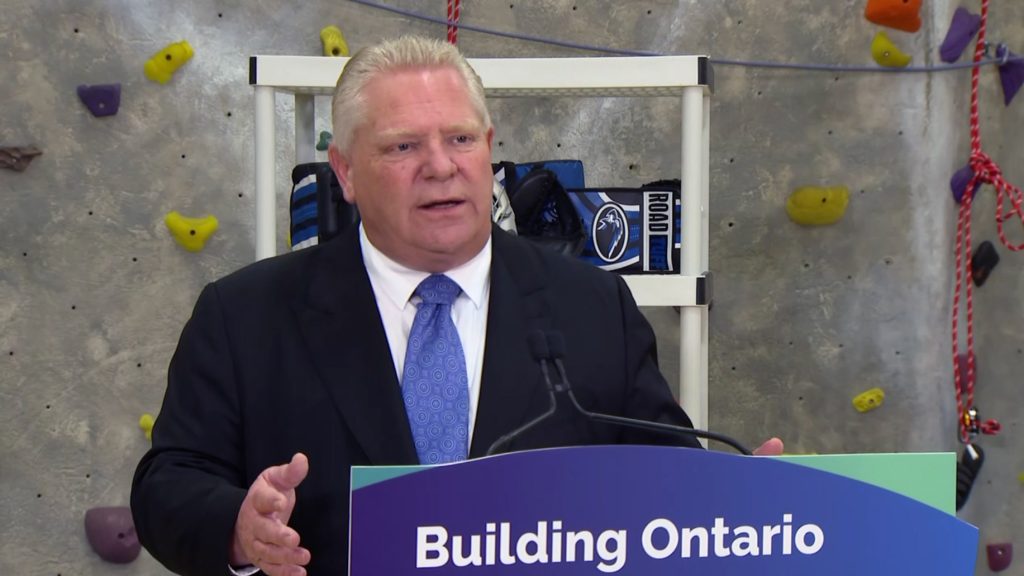TransCanada NAFTA challenge could break U.S. winning streak, experts say
Posted January 7, 2016 3:21 pm.
Last Updated January 7, 2016 7:00 pm.
This article is more than 5 years old.
CALGARY – As TransCanada prepares to launch a trade challenge over the rejection of the Keystone XL pipeline, the U.S. track record in similar disputes may not appear very encouraging for the Calgary-based company.
TransCanada itself acknowledges that the U.S. has never lost a claim under the North American Free Trade Agreement, but has decided it’s the right move after a “careful evaluation.”
Experts say the U.S. winning streak is no reason to discount TransCanada’s chances.
TransCanada (TSX:TRP) has given notice that it intends to seek US$15 billion in damages over President Barack Obama’s rejection of the pipeline in November. Separately, it has filed a federal lawsuit in Houston that seeks a declaration that Obama overstepped his constitutional power when he denied the permit.
Jim Rubin, a partner at law firm Dorsey & Whitney based in Washington, D.C., said he wouldn’t read to much into past U.S. wins when predicting how a TransCanada case may play out.
One reason is that, unlike a typical court case, NAFTA arbitration tribunals are not bound to follow precedents set in past cases.
“It’s a really different creature,” said Rubin. “If they have a strong case, they have a strong case.”
Although there’s no formal requirement to follow precedents, past cases will likely be highlighted as a means to persuade a tribunal.
A recent case involving a U.S. company’s attempt to expand a quarry in Nova Scotia may work in TransCanada’s favour, said Nicolas Lamp, an assistant professor with Queen’s University’s faculty of law.
Bilcon filed — and won — a NAFTA challenge after the provincial and federal governments rejected its project. Bilcon is now seeking at least US$300 million in damages.
The tribunal concluded that the joint review panel considered factors outside Canada’s environmental legislation that were not disclosed to Bilcon during the review process.
TransCanada has a “good shot” if the Bilcon case is taken into account,” said Lamp.
“If the arbitration tribunal were to follow that precedent of the Bilcon case, I think it’s quite likely that they will find against the U.S.”
Lamp said there are stark similarities between the Bilcon case and the Keystone XL saga — namely, that each company expected the regulatory process to unfold in one way, only to encounter “moving goalposts” partway through.
In the case of Keystone XL, the goalposts had to do with Obama making the pipeline’s broader implications for climate change a key test for whether to approve it.
Guy Holburn, who directs the Ivey Energy Policy and Management Centre at Western University, said TransCanada has a strong case based on how differently it was treated when it built the first phase of its Keystone system. The XL segment would have provided a more direct route for more oilsands crude to reach Gulf Coast refineries.
The “base Keystone” system, which started up in 2010, made its way through the regulatory process relatively smoothly within a couple of years. The XL expansion was in limbo for seven years before it was nixed.
“This has been a very exceptional project that’s been put through the political wringer,” said Holburn.
TransCanada wouldn’t have made its decision to file a NAFTA claim lightly, said Elizabeth Whitsitt, an assistant professor at the University of Calgary’s law faculty.
“International arbitration is very expensive — tens of millions of dollars at least — it poses reputational risk to a company and it takes years upon years before they’re concluded.”
Follow @LaurenKrugel on Twitter.










